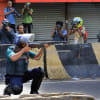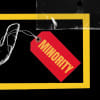Sudan crisis explained: Why wars are not a matter of the past

After the October 7 Hamas attacks and Israel's genocide in Gaza that followed, much of the world is reckoning with the consequences of persisting imperialism. The nature of the interweaved global politics of modern times has become evident not just through the sales of consumer goods, but also the sale of arms. In this regard, the crisis in Sudan is in many ways similar, with horrific news repeatedly coming out about the state in which the civilians have been living.
Starting in April 2023, well over a year has passed since the eruption of the crisis that is now termed a civil war. The chilling lines from a UNHCR report that the war has turned "homes into cemeteries" provide a glimpse at the terror that now encompasses the lives of those locked by the fight between the Sudanese government forces and the Rapid Support Forces (RSF). According to a UN report, only 16 percent of the target have been met for humanitarian aid allocated for Sudan.
According to Al Jazeera, 10 million people have been displaced in Sudan, a matter only exacerbated by the fact that 2.83 million people were already displaced by "previous conflicts." Of the 48 million people in Sudan, more than a quarter have had to flee, with two million crossing borders in fear of their lives. Many Sudanese civilians have fled to Chad, Uganda, Ethiopia and South Sudan—the exodus may place pressure on these nations and cause another cycle of violence. The overall death toll remains unclear, with some estimates of 150,000 according to Tom Perriello, the US special envoy for Sudan. As per the British Red Cross, 25 million people are in need of urgent humanitarian assistance as of April 2024. By some estimates, the current situation in Sudan could surpass the horrific famines in Ethiopia 40 years ago, which was said to have taken the lives of approximately one million people. At present, it is estimated that 18 million people in Sudan are "acutely hungry" and among children, 3.6 million are "acutely malnourished"—excluding severe injuries, both physical and psychological, that will be carried by the affected population for years, if not decades, to come.
Sudan's history is one that is rife with issues, from its independence from British and Egyptian rule in 1956 to the 22-year conflict in 1983-2005 to the present day, with famine and ethnic cleansing being recurring events over many years. The hope that had come in 2019 with the ousting of Omar al-Bashir, who had ruled Sudan for 30 years, was quickly extinguished in 2021, when the already fragile state of democracy in Sudan was ruptured by a coup organised jointly by army General Abdel Fattah al-Burhan and Mohamed Hamdan Dagalo, better known as Hemedti.
However, the current conflict occurred when the relationship between the two military leaders festered. Burhan, the commander of the Sudanese Armed Forces (SAF), and Hemedti, the leader of the RSF, were once allies. While Hemedti believed that the dismantling and then reintegration of the RSF into the army would require 10 years, the SAF commander believed it could be done in two. The ensuing crisis that emerged from this conflict has had devastating consequences and a grueling genocide, one which the world has not been ready to tackle, and one which has received far less coverage than the genocide in Gaza.
A line from a 2004 article in Mother Jones about the Sudanese civil war stated, "If it has learnt from Rwanda, the West should act to stop mass killings in Sudan."Almost two decades later, the dismal fact of the matter is that the situation has not changed. As Europe lurches to the far-right, with the stoking of Islamophobia and anti-immigration sentiments as one of its most potent tools, we must remember that the sales of weapons from the West has for decades propped up authoritarian regimes in parts of the world called the Global South.
Another recent article in Le Monde claims that "some states are actively fuelling the conflict by providing arms and ammunition." From the Russian Wagner group to the United Arab Emirates (UAE), arms have reportedly been supplied to perpetuate the conflict in Sudan, and these groups have reportedly profited from the horrific situation—just as it has been in other conflicts, particularly genocides, throughout modern history.
To look away from Sudan, at this time, is tantamount to complicity. Innocent people losing lives and many barely surviving in a conflict created not by nature but by humans should make us pause, because it lays bare one of the cemented beliefs about the 21st century—that war is a matter of the past. In truth, wars, genocides, and the military industrial complex are well and alive. As is frequently seen with conflicts today, it is rarely one country or the forces within the borders of a single nation involved in widespread systemic violence of the kind that is happening in Sudan.
The consequences of such decisions place, as usual, the lives of the innocent in grave danger. Sudan as of now has the largest internally displaced population in the world because of both the current conflict and the others that preceded it. The world has had the chance to bear witness to such atrocities through platforms that are not yet regulated the way traditional media has been—through personal phones and social media accounts broadcasting information and current events at a fraction of the cost it takes for traditional newsrooms to show the world what is occurring. It is what allowed young journalists in Gaza to show what was happening on the ground even as the most powerful countries in the world worked to side with Israel.
Yet, many today feel powerless: the nature of modern world politics, as facilitated by civilian and military technology, prolongs wars that could have perhaps been snuffed out had external influences not existed in the pernicious ways that it does. To counter the immense powerful network that works against the innocent, it is imperative that at the very least we pay attention to conflicts such as the one in Sudan.
Aliza Rahman is a member of the editorial team at The Daily Star.
Views expressed in this article are the author's own.
Follow The Daily Star Opinion on Facebook for the latest opinions, commentaries and analyses by experts and professionals. To contribute your article or letter to The Daily Star Opinion, see our guidelines for submission.

 For all latest news, follow The Daily Star's Google News channel.
For all latest news, follow The Daily Star's Google News channel. 








Comments